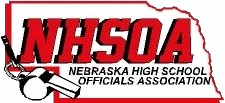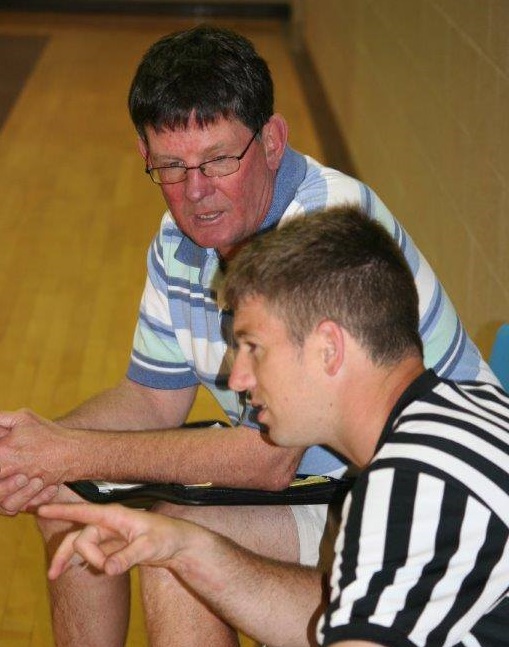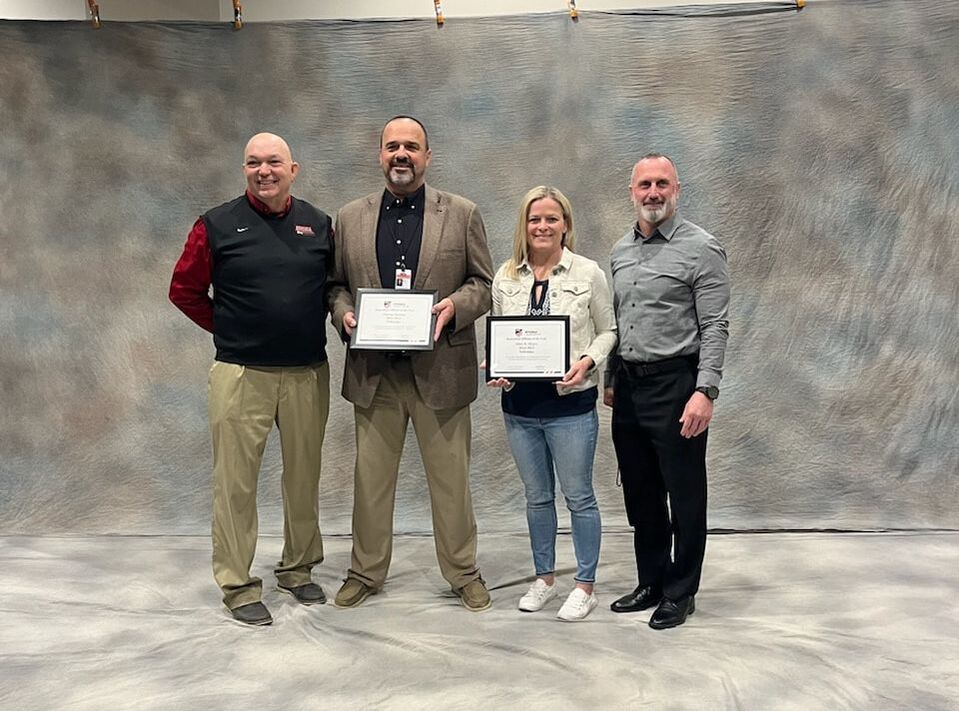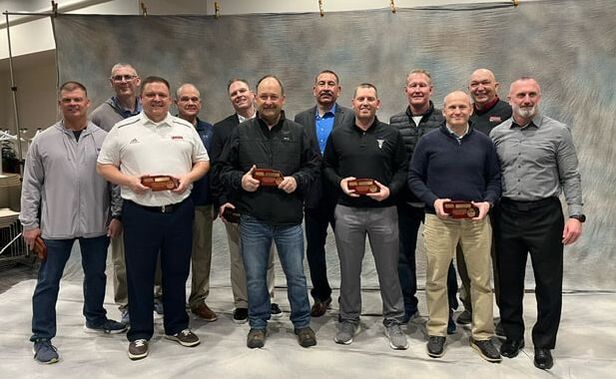2024 NHSOA State Championship Officials
|
Basketball Newsletter on the Daily Grind
“Adapt and Adopt” Basketball season is upon us, for those NHSOA members who didn’t attend a summer clinic we have exciting news. The NHSOA board of directors voted to purchase HUDL. HUDL will be a great tool for officials to self evaluate and use to get better. During the fall sports season we did a trial period with things going pretty smooth. Our goal is to have HUDL access for all NHSOA members for the Winter sports season. We have some administrative questions/concerns to iron out and we will be good-to-go, hopefully by our November 22nd meeting we can move forward. Our summer clinics were well attended. 169 officials attend clinics throughout the State, District 1 @ Northstar, District 2 @ Creighton Prep, District 3 @ Central Community College Columbus, District 4 @ GICC, District 5 @ McCook Community College, and District 6 @ Scottsbluff High School. Out of the 169 officials over 40 had less than 5 years experience. It was great to see new officials attending the clinics; it was also great to see the veteran officials helping these officials. I would like to thank our NSAA observers who served as clinicians, Jeff Wolf, Rich Rethwisch, Larry Bornschlegl, Vince Smith, Carlos Flores, and Willie Wisebrook. Thank you to the NHSOA basketball committee members in each district for the time spent and commitment to put the clinics together. Chad Lyons has stepped down from the NHSOA board, Chad served on the NHSOA board since the associations beginning. I would like to thank Chad for his years of service and dedication to High School officiating. Chad will be missed. Taking over the seat on the board of directors will be Scott Johnson; Scott brings a ton of great ideas to the association. Scott is currently serving as website coordinator for the NHSOA. He does a fantastic job, visit the website nhsoahome.org Remember NHSOA members, this is your association, and without you the NHSOA would not exist. If you have any concerns/comments feel free to contact myself or a committee member in your district. Have a great season. NHSOA DIRECTOR KELLY CLASSEN 2022 - 2023 Basketball Officials of the Year
Darren Duncan and Mary Karol McGee 25 Years of Service Award - 2024 Basketball Officials
Front: Scott Johnson, Todd Wardyn, John Hodges, Gary Piercey, Bate Neuhaus Back: Lester Piper, Steve Addkison, Chris Mroczek, Pete Moreno, Travis Unzicker, Kelly Classen Not Pictured but Recognized: Steve Arehart, Willie Beamon, Tyler Marshall, Chris McCormick, James Peterson, Paul Reinertson, Michael Theile, Chris Wright | ||||||||||||||||||||||




